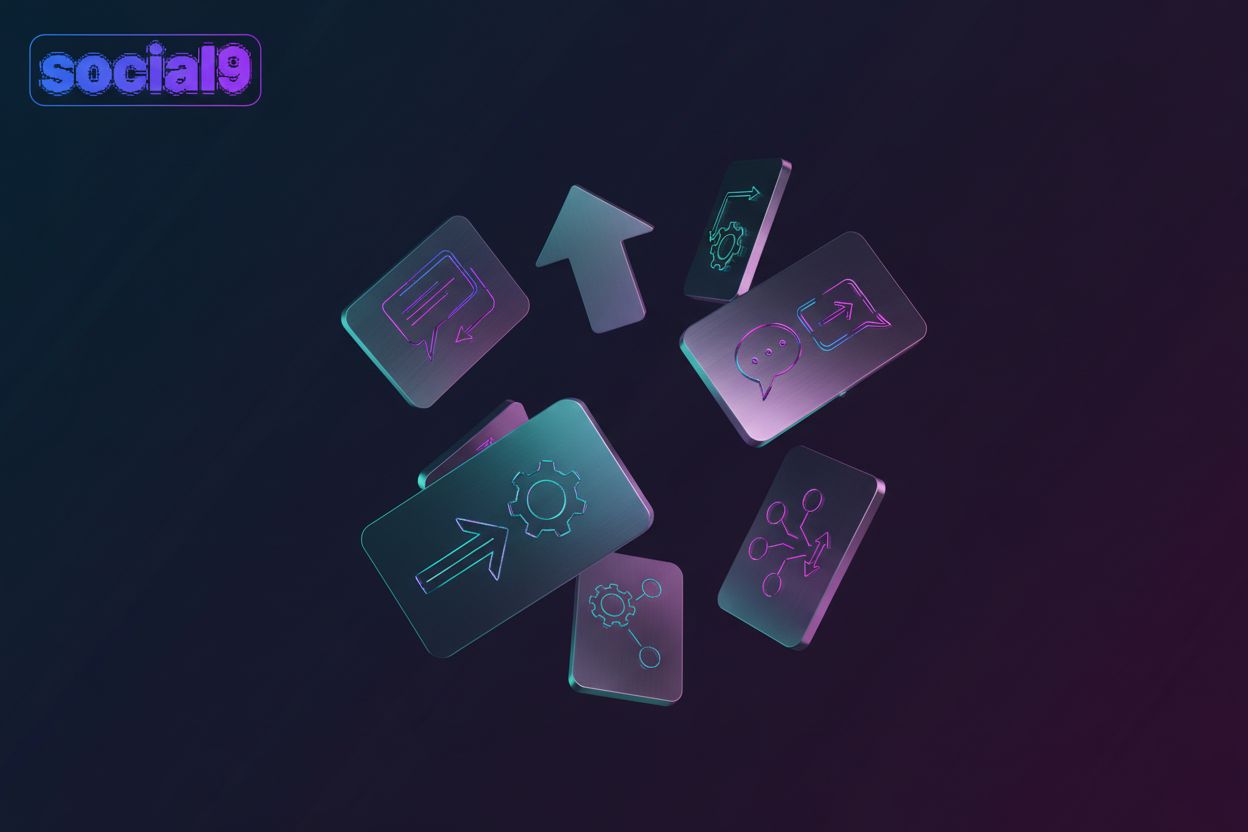Unlock Engagement AI-Driven Content Personalization Secrets
TL;DR
The Rise of AI-Driven Content Personalization
Alright, let's dive into ai-driven content personalization. It's kinda crazy how much things have changed, right? Remember the days of generic emails? Now, it's all about making each customer feel like, special.
- Consumers expect personalized experiences, across all channels, no joke.
- ai enables hyper-personalization by, like, analyzing tons of data in real-time. (AI Personalization: What Actually Works in 2025 [Real Results]) It's not just segmenting people anymore; it's understanding them.
- Brands? They can now tailor content to individual customers at scale. (Three brands nailing hyper-personalization at scale—and what we ...) Think about healthcare orgs sending specific wellness tips based on a patient's history. Or a retail company showing you ONLY the shoes you'd actually buy.
It's not just a nice-to-have anymore. As ibm (ibm) points out, customers are getting frustrated when they don't get personalized content.
According to a 2024 report, 59% of marketers are using ai to enhance personalization initiatives AI Powered Personalization: Personalized Customer Experiences at Scale.
- Marketing teams? They're applying ai across content optimization and customer journey mapping.
- Industry leaders think ai will basically redefine marketing strategies by 2025. That's, like, next year!
So, how does this actually work? Well, it involves algorithms crunching data, figuring out patterns, and predicting what you want before you even know it. This involves real-time content adjustments.
Now that we've got a handle on the rise of ai personalization, let's look at meeting modern customer expectations.
Applications of AI Personalization
AI personalization can feel like magic, right? But how do you actually use it to make things better? Let's break down how ai is being applied in the real world.
ai personalizes product recommendations based on what you've looked at or bought before. Think about netflix suggesting shows, or amazon suggesting products; those ain't random.
ai-powered chatbots are giving context-aware support, which is pretty cool. Instead of dealing with generic replies, you get answers that actually make sense for your situation.
Intelligent content customizes the words and pics you see in real-time. So, if you always click on blue shoes, that's what you're gonna see more of.
ai allows for precise ad targeting, so ads are shown to a super-specific group of people. It segments audiences at a micro-level.
Dynamic pricing adjusts prices based on demand and what competitors are doing. Airlines and hotels do this all the time!
Predictive personalization anticipates what you need before you even know it. It recommends the next-best action based on what you've done before.
Now, let's dive deeper into the data-driven impact.
Data-Driven Impact: Key Metrics and Benefits
Okay, so you're probably wondering how all this ai personalization stuff actually helps, right? It's not just hype, it's about making things better, plain and simple.
- Marketers are seeing a serious return on investment (roi). ai-driven personalization helps focus marketing efforts, which means less wasted cash. It's not uncommon to see a 25% lift in roi by applying ai.
- Companies are also reporting sales increases. Personalization makes people want to buy stuff–shocker, i know. It's been shown that ai personalization can boost sales, by around 20%.
- The more personalized the experience, the more people engage with the brand. It really is as simple as that. Personalized content drives deeper engagement, and some companies is reporting engagement rates double what they were before.
McKinsey states that personalization leaders can enhance marketing spend efficiency by 10–30% by focusing on the most relevant content and offers for each consumer.
- ai personalization is great for conversion and retention rates. If you show people what they want, they're more likely to stick around. In fact, businesses are seeing conversion rates jump by 1.7×.
- When personalization is done right, customer satisfaction goes up too. People want to feel seen and understood, and ai can really help. Customers really do feel valued, boosting satisfaction scores by as much as 30%.
- And get this, personalization can actually reduce customer acquisition costs and marketing expenses. Why? Because you're not wasting money on ads people won't click.
So, what's next? Well, let's talk about some broader strategic advantages.
Strategic Benefits of AI Personalization
AI personalization, you know, it's not just about making things feel nicer, it's about actually driving strategic advantages. What kinda benefits are we talking about?
Boosting Customer Loyalty and Retention: Forget generic marketing, personalization makes it feel like a service. This fosters emotional loyalty, and customers spend way more time interacting with content that actually speaks to them. It also increases customer lifetime value (clv) through repeat purchases and reduces churn by making customers feel understood and valued.
Gaining a Competitive Advantage: In today's crowded market, standing out is key. Brands that master ai personalization can offer superior customer experiences that competitors can't easily replicate, leading to a stronger market position and increased market share.
Improving Resource Allocation and Efficiency: By understanding individual customer needs and preferences, businesses can optimize marketing spend, product development, and customer service efforts. This means focusing resources on what truly matters, reducing waste, and improving overall operational efficiency.
Enhancing Brand Perception and Reputation: Delivering consistently relevant and valuable personalized experiences builds trust and positive associations with your brand. Customers are more likely to view a brand that understands them as innovative, customer-centric, and reliable, which can significantly boost brand perception.
So, with ai doing it's thing, it can help you get more money in the long run. Now, let's talk about the implementation side of things.
Implementation Considerations for AI Personalization
Alright, so you're thinking about actually putting ai personalization into action? It's not always a walk in the park, let me tell ya. You gotta think about a few things first.
First off, data, data, data. You need lots of it, and it needs to be good. Aggregate as much first-party data as you can, and make sure it's, like, clean. Garbage in, garbage out, ya know? Poor data quality—meaning inaccurate, incomplete, or outdated information—can lead to flawed predictions, biased outputs, and ultimately, ineffective personalization strategies that alienate customers.
Ensure all your data practices are up to snuff, too. Comply with gdpr, ccpa, all that jazz. Customers need to trust you with their info. Transparency's key, and adhering to these regulations is crucial for building that trust and ensuring the ethical use of data for personalization.
Next, you gotta get all your systems talking to each other. That means your data platforms, ai/ml engines, content management systems—the whole shebang. It's gotta work in real-time, too. Common challenges include data silos and legacy systems, but solutions like Customer Data Platforms (cdps) and robust api integrations can help facilitate seamless data flow.
Think about adopting a modular, api-driven approach for your ai models. Makes things way easier to manage and scale.
Once you got the data and tech sorted, then you need content! Use generative ai to whip up multiple versions of your content. Gotta have options, right? But, don't go crazy. It's important to have a solid content strategy that includes A/B testing AI-generated variations, ensuring brand voice consistency, and implementing human oversight to catch any errors or inappropriate content.
Make sure all that ai-generated stuff stays on-brand and unbiased. Last thing you want is ai going rogue.
Implementing ai personalization ain't a simple thing, but, if you do it right, it will be worth it. Now, let's look at some real-world success stories.
Supercharge Your Content with Social9
Alright, so you're lookin' to really amp up your content, huh? Social9 might just be the tool you didn't know you needed.
- ai-powered content creation: Forget writer's block, Social9 got you. It helps you whip up social media content that's actually engaging, which is a game changer.
- Smart captions and hashtags: We all know a good caption can make or break a post. Social9 gives you smart caption and hashtag suggestions, so your content actually gets seen.
- Diverse content templates: Wanna keep your brand consistent? They have got you covered with content templates for all the platforms.
It's like, having a social media manager in your pocket–but without the hefty price tag.
Real-World AI Personalization Success Stories
AI-driven personalization is cool and all, but does it actually work? Turns out, when it's done right, it really does! Let's look at some real-world examples.
netflix uses fancy algorithms to suggest shows and movies you might like. It's all based on what you've watched before.
Believe it or not, this recommendation system saves netflix about $1 billion every year. Yeah, billion with a "b"! It’s saving a bunch on subscriber cancellations.
Personalized recommendations keeps people hooked, so they don't cancel their subscription.
starbucks uses something called Deep Brew to figure out what their loyalty members are into.
This ai personalization led to a 30% increase in roi on marketing stuff. That's a big jump!
They also use it to suggest drinks and offers that people will actually want, boosting their engagement.
amazon is the king of ai recommendations, right? They personalize your homepage based on what you've looked at before.
It's estimated that 35% of their e-commerce revenue comes from these ai-driven product suggestions. Crazy!
These recommendations make you buy more stuff and make the whole shopping thing better.
So, ai personalization? It's not just a buzzword. It's helping companies make more money and keep customers happy. Now, let's wrap this up.




